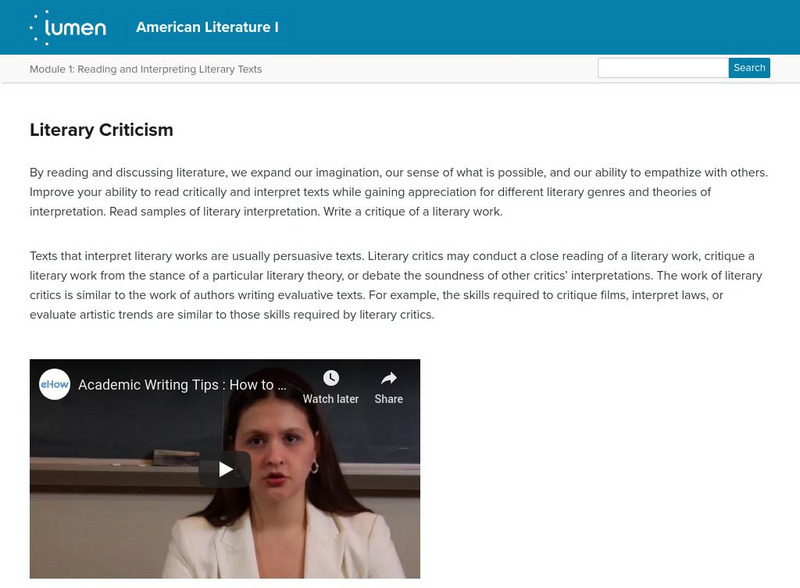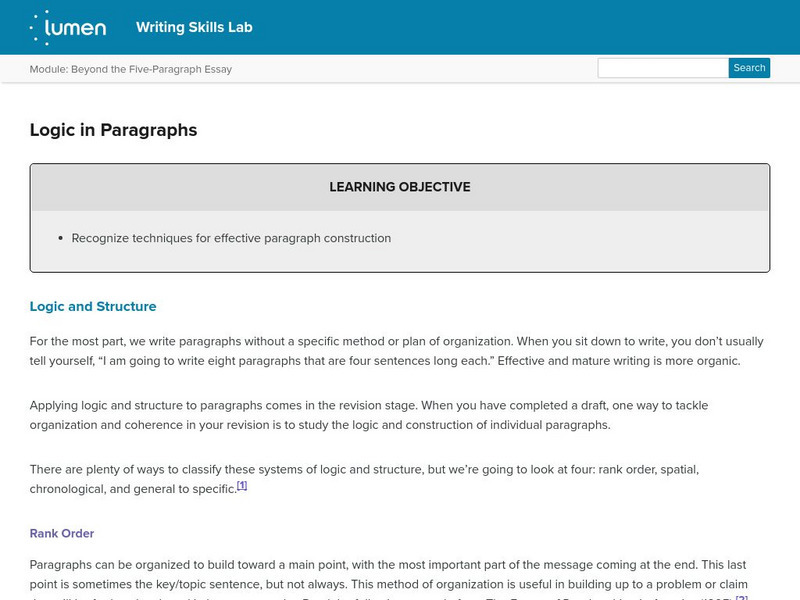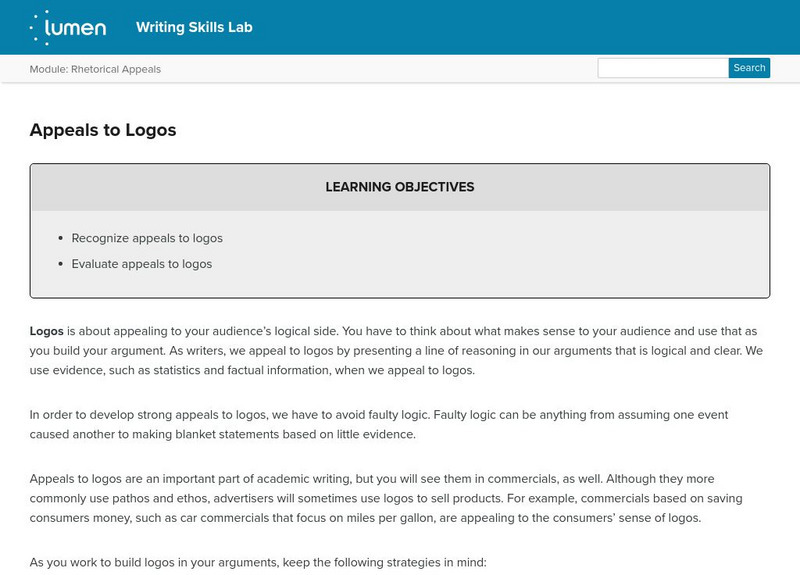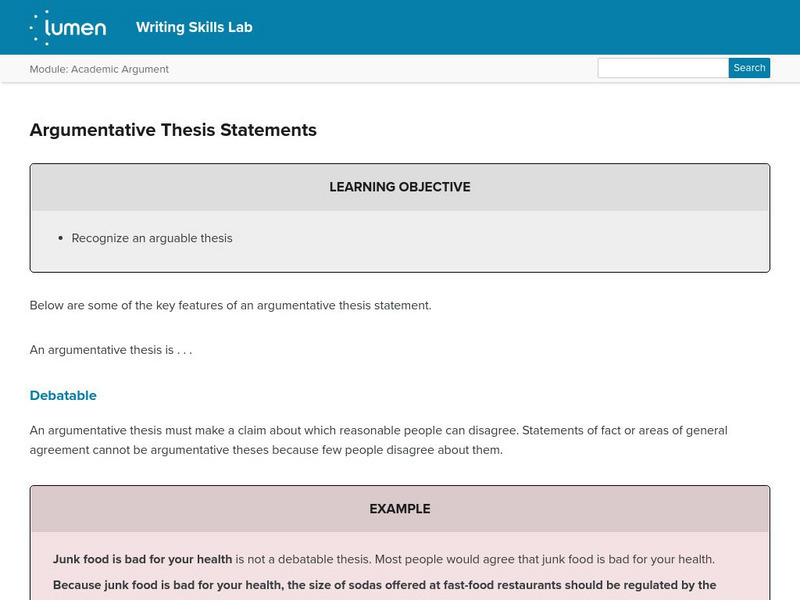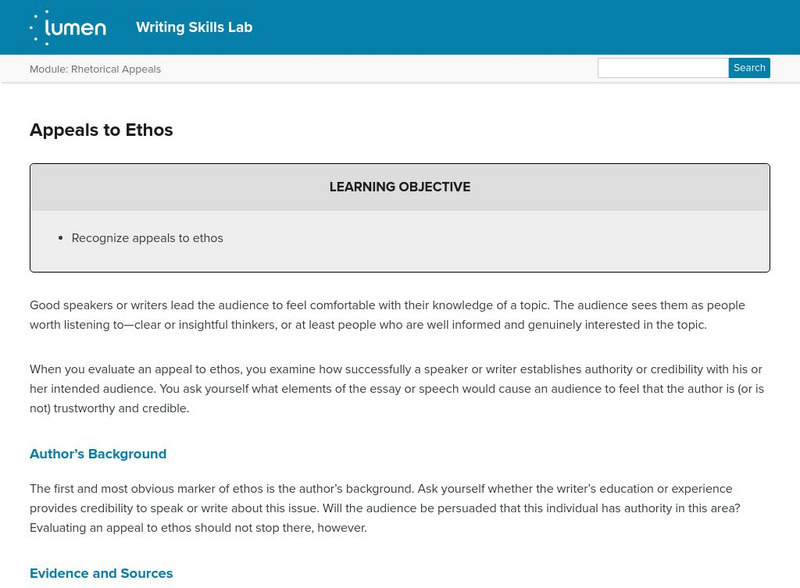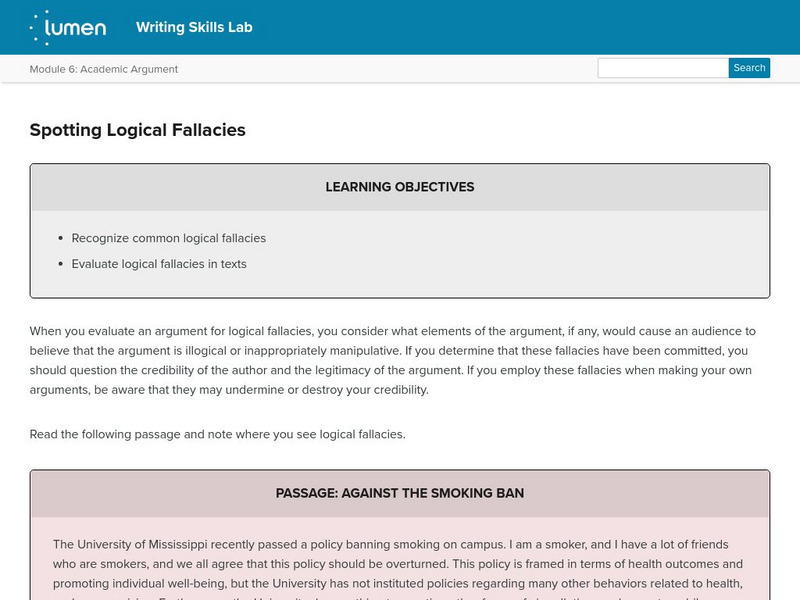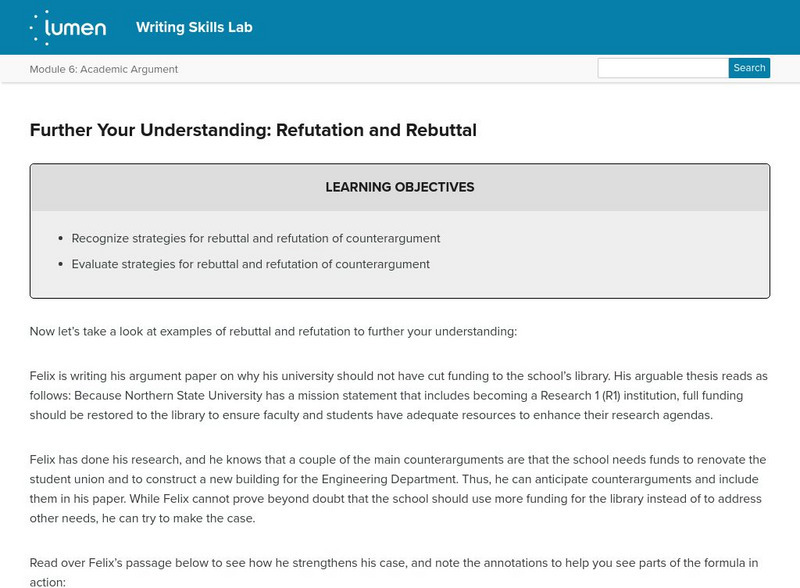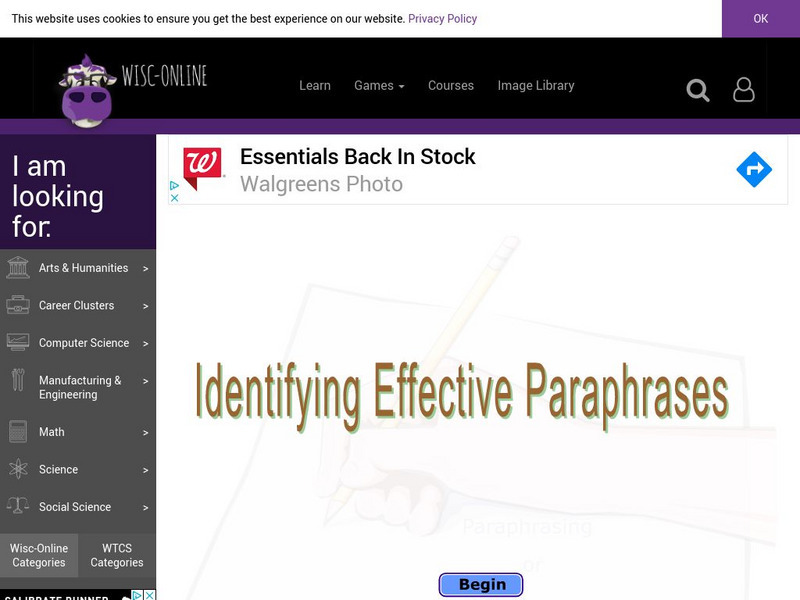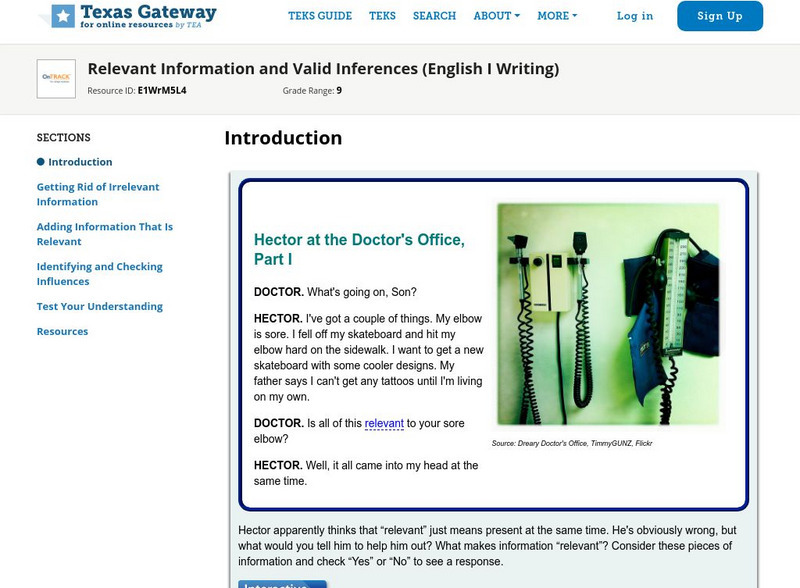Lumen Learning
Lumen: Boundless Communications: Logical Appeals
This activity focuses on using logical appeals in persuasive speeches including inductive and deductive reasoning, inductive reasoning and associative reasoning, forming a rational appeal, and errors in reasoning-formal and informal.
Lumen Learning
Lumen: Reading and Interpreting Literary Texts: Literary Criticism
This lesson focuses on how to write a literary criticism, the different theories and approaches to literary criticism, and their standard format.
Other
Bbc: H2g2 Circular Reasoning
Excellent definition and discussion of the term "Circular Reasoning," including a couple of very clear examples.
Lumen Learning
Lumen: Writing Skills: Conclusions
This lesson plan focuses on strategies for writing effective conclusions. It provides a list of strategies and a sample essay.
Lumen Learning
Lumen: Writing Skills: Logic in Paragraphs
This lesson focuses on logic in paragraphs including logic, structure, rank order, and organization.
Lumen Learning
Lumen: Rhetorical Appeals: Appeals to Logos
This lesson focuses on appeals to logos, or appealing to your audience's logical side including your types of source material, remembering your audience, and being sure to maintain clear lines of reasoning throughout.
Lumen Learning
Lumen: Rhetorical Appeals: The Star Criteria
This lesson focuses on the STAR Criteria for evaluating appeals to logos; it includes evaluating for Sufficiency, Typicality, Accuracy, and Relevance.
Lumen Learning
Lumen: Rhetorical Appeals: Kairos and Logos
This lesson focuses on the 4th logical appeal called Kairos, a time when conditions are right for the accomplishment of a crucial action; the opportune and decisive moment.
Lumen Learning
Lumen: Academic Argument: Argumentative Thesis Statements
This lesson focuses on argumentative thesis statements and on recognizing an arguable thesis.
Lumen Learning
Lumen: Academic Argument: Practice: Argumentative Thesis Statements
This practice exercise focuses on recognizing and evaluating argumentative thesis statements.
Lumen Learning
Lumen: Rhetorical Appeals: Appeals to Ethos
This lesson focuses on appeals to Ethos, When you evaluate an appeal to ethos, how successfully a speaker or writer establishes authority or credibility with his or her intended audience. You ask yourself what elements of the essay or...
Lumen Learning
Lumen: Rhetorical Appeals: Establishing Ethos
This lesson focuses on establishing ethos or credibility. You can establish ethos-or credibility-in two basic ways: you can use or build your own credibility on a topic, or you can use credible sources, which, in turn, builds your...
Lumen Learning
Lumen: Writing Skills: Common Logical Fallacies
This lesson focuses on logical fallacies including defining them, discussing the different types of logical fallacies, and a practice activity.
Lumen Learning
Lumen: Writing Skills: Spotting Logical Fallacies
This lesson focuses on recognizing common logical fallacies and evaluating them in texts. It also provides a practice exercise.
Lumen Learning
Lumen: Writing Skills: Formula for Refutation and Rebuttal
This lesson focuses on the formula for refuting and rebutting counterarguments including accurately representing opposing viewpoints, using a respectful, non-incendiary tone, using reliable information, using qualifying words to aid...
Lumen Learning
Lumen: Writing Skills: Further Your Understanding: Refutation and Rebuttal
This lesson focuses on examples of rebuttal and refutation to improve your understanding.
Lumen Learning
Lumen: Critical Reading: Logic and Structure
This instructional activity focuses on structure and logic including types and purposes of essays, organizational patterns, argumentative writing, and logic and fallacies.
Lumen Learning
Lumen: Writing About Literature: Finding Literary Criticism
This article focuses on how to find literary criticism including scholarly journals, citations from other works, a list of useful links to find sources, and TAMU libraries' website.
University of Victoria (Canada)
Uvcs: Critical Reading Exercise
Students read quotations from different "interest groups" or "lobbies" in this exercise and then perform a multiple-choice test to evaluate the credibility of each lobby group.
Wisc-Online
Wisc Online: Identifying Acceptable Paraphrases
This learning module defines paraphrasing and discusses how to paraphase, and then they identify acceptable paraphrases of source material.
Texas Education Agency
Texas Gateway: Informational Text: Analyze an Argument: Practice 1
When you read an argumentative essay or article, you should analyze the author's evidence. However, you can't analyze the evidence a writer gives in support of a position if you don't know the author's perspective.
Other
Learning Design Collaborative: Cer: Claim, Evidence, and Reasoning
Students write a scientific claim that is backed up by evidence and supported by scientific reasoning. Base your answer on your reading of a data table.
Texas Education Agency
Texas Gateway: Relevant Information and Valid Inferences (English I Writing)
[Accessible by TX Educators. Free Registration/Login Required] An inference is a guess based on the information within a situation. It is valid if the guess is logical. This lesson teaches you how to check a completed draft for relevant...
Texas Education Agency
Texas Gateway: Relevant Information and Valid Inferences
[Accessible by TX Educators. Free Registration/Login Required] In this lesson, you will learn how to make the information in your expository essays relevant and your inferences valid.



